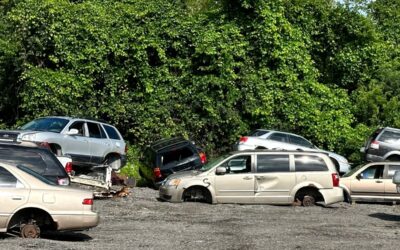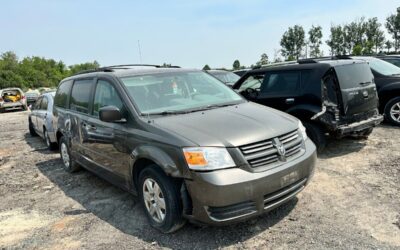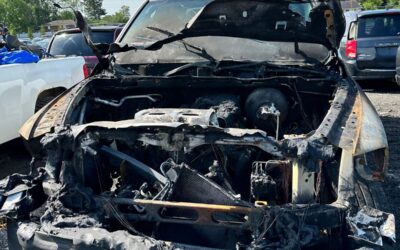Introduction
Each car eventually reaches a point where repair costs exceed the car’s value. Many owners keep their aging cars for too long, hoping that the next repair will keep them on the road a little longer. But delaying this decision can lead to extra expenses, safety risks, and wasted money.
This comprehensive guide will illuminate the questions car owners in Ontario have about scrapping a vehicle. You’ll learn when scrapping is appropriate, what to look for, and how Ontario’s auto recycling laws work. Once you finish, you will know when it is right to part with your car and the right way to scrap it.
Why Is Timing Important When Scrapping Your Car?
Scrapping your car at the right time isn’t merely about disposing of old machinery. It has direct and indirect implications on safety, repair spending, and, of course, what cash value you will get from the scrapyard. Keeping an old car that breaks down can really add up to expenses for repairs and additional fuel consumption.
Furthermore, older vehicles in Ontario are more polluting and often fail emissions testing. In short, scrapping your car too late yields a lower scrap value, since parts continually wear, rust, and become useless. Good timing ensures you receive fair cash value and avoid further expenses.
How to Know Your Car Isn’t Worth Fixing Anymore
Once a car undergoes multiple repairs, which ultimately costs more than its worth, it’s time to move on. Many car owners in Ontario hold onto vehicles hoping to restore them, but those efforts rarely bring the car back to its best condition.. Don’t fall into the trap of continuously spending on a car that’s beyond saving because the used car rates dip, and you lose even more in losses. Here are obvious indicators:
-
- Repair costs exceed the car’s market or resale value.
- The vehicle failed regular safety inspections or emission tests.
- Repeated concerns with either the motor or the transmission.
- Structural damage to an automobile frame from an accident or rust.
- Parts are not easily found.
- The insurance company deems it a total loss.
Also Read: Scrap vs. Repair: How to Know If Your Car Is Worth Fixing
How Vehicle Age and Mileage Impact Scrap Value?
Age and mileage are the two primary variables that Ontario scrapyards rely on when pricing a scrap vehicle. Generally, more cars tend to either lose like-new or lose value after 15 years, as resale markets will have already passed their “peak” resale value. As cars age, parts wear down, and rust becomes more common—especially during harsh Canadian winters.
High-mileage vehicles are essentially ‘scrap,’ even if they still run fine, because critical components like the engine, transmission, and suspension deteriorate quickly. A car after 250,000 km is typically past its use. The more kilometres your car has, the lower the scrap value for your vehicle. To get a reasonable price for the scrap value, your vehicle will need to be scrapped before it reaches high age and mileage.
Seasonal Considerations: What time of year is best for scrapping?
In Ontario, scrap metal prices vary slightly with the seasons. Winter generally sees lower scrap metal prices due to less demand from the industrial sector. Spring and early summer are usually the best times to scrap a vehicle, because scrapyards are taking in more vehicles, and scrap prices recover after the winter slowdown. Additionally, older vehicles suffer more from the effects of harsher winters, and many car owners scrap these vehicles that have died over the winter by early spring.
Scrapping your vehicle before winter can save you from cold-weather damage, costly breakdowns, and lower seasonal scrap prices. It’s also just easier to get your car removed when driveways and roads are not blocked by snow.
Also Read: Seasonal Trends in Ontario’s Used Car Market: A Greenway Auto Recycling Guide
The Expense of Owning an Unreliable Vehicle
Many people don’t realize the actual costs of keeping an unreliable car. In addition to the cost of repairs, you will pay higher fuel charges because older vehicles use more fuel due to older engine technology. Insurance premiums often don’t decrease for older vehicles, especially if they’re considered unsafe to drive.
Spending money on repairs and time taken by a workday is frustrating, but if the old car breaks down unexpectedly, you will miss work and spend on vehicle tow or emergency mechanic fees. In Ontario, you can even rebut a license plate sticker renewal if your vehicle fails an emissions test. These hidden costs of keeping an unreliable car add up quickly, and scrapping a problem car now saves you trouble and expense in the future.
When Insurance Declares Your Car a Total Loss
After your car is involved in an accident, if it suffers damage, the insurance company will determine the cost of the repair versus the market (fair) value of the car. In Ontario, once the repair cost exceeds the fair market value, your car is regarded as a total loss. When this occurs, the insurance company must provide a settlement offer to you, and the insurance company may take title of the vehicle to scrap it.
You can opt to retain your vehicle title after the salvage offer; however, in your vehicle record on the Ontario Registry, your vehicle will be listed as “salvage” or “irreparable”. Furthermore, until a vehicle is certified after a “salvage”, it cannot be driven legally. Given the high cost to rebuild and then recertify, most owners take the option of scrapping their vehicle.
Emissions Tests Failures and Future Legal Issues
In 2019, Ontario’s Drive Clean program for light-duty vehicles was terminated; however, emission standards for heavy-duty diesel vehicles and imported vehicles do exist. Although there are no longer mandatory emission tests, older vehicles frequently cause levels of pollution well above the set standards.
This inevitably lowers their resale value and may even lead to legal issues if damaging smoke or leaking fluids affect public roads. In addition, if your car leaks oil or fuel, you can also be fined under Ontario’s environmental rules.
Many wreckers will ensure there are no hazardous vehicle fluids before accepting wrecked vehicles. For these reasons, scrapping a failed vehicle sooner rather than later helps you avoid legal problems and cleanup costs.
Also Read: How to Maximize Your Profit When Selling a Scrap Car in Canada
Top Benefits of Scrapping Your Car Early
Scrapping your car before it completely breaks down offers several financial and practical advantages. Here’s why Ontario car owners should consider it sooner rather than later:
-
- Avoid wasting money on endless and expensive car repairs.
- Get a higher scrap price while your car parts are still in usable condition.
- Stop paying insurance premiums for a car that barely runs or stays parked.
- Reduce your fuel expenses, as older cars consume more gas than newer models.
- Prevent sudden breakdowns and avoid paying towing charges when your car stops unexpectedly.
- Free up valuable space in your driveway or garage for a newer, safer vehicle.
- Lower your environmental impact by removing a high-pollution, old vehicle from the road.
- Receive instant cash payment from certified Ontario scrap car removal services.
Conclusion
Timing your scrap car removal can help you save money and avoid future headaches. Older vehicles typically come with higher ongoing costs, greater pollution, and increased safety risks you shouldn’t ignore. Knowing when to scrap allows you to make better decisions for your wallet, and potentially, the environment.
Contact Greenway Auto Recycling today for fast, professional, and eco-friendly scrap car removal in Ontario. We’ll guide you through the entire process—from removing your license plates to completing recycling paperwork and picking up your vehicle on your schedule.





